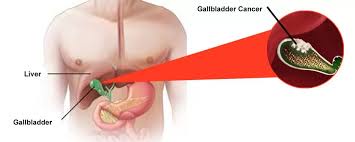Introduction
Abdominal cancer, also known as abdominal cavity cancer, refers to malignancies that originate within the abdominal region, affecting various organs and tissues within the abdominal cavity. This type of cancer can be particularly challenging to diagnose and treat due to the complex interplay of organs in this area. In this article, we will explore the causes, symptoms, and treatment options for abdominal cancer.
Causes
The exact causes of abdominal cancer can be multifactorial and are often linked to genetic, environmental, and lifestyle factors. Some common risk factors associated with abdominal cancer include:
-
Genetics: Family history of cancer, especially in the abdominal area, can increase the risk of developing abdominal cancer. Genetic mutations, such as those associated with Lynch syndrome or familial adenomatous polyposis (FAP), can also predispose individuals to this type of cancer.
-
Obesity: Excess body weight, particularly in the abdominal region, is a significant risk factor for abdominal cancer. Obesity can lead to chronic inflammation and hormonal imbalances that may contribute to the development of cancer.
-
Smoking: Smoking is a known risk factor for several abdominal cancers, including pancreatic and stomach cancer. The harmful chemicals in tobacco smoke can damage the DNA of abdominal cells, increasing the likelihood of cancer development.
-
Diet: A diet high in processed foods, red meat, and low in fruits and vegetables can increase the risk of abdominal cancer. High intake of salt-preserved foods has been linked to an increased risk of stomach cancer.
-
Infections: Certain infections, such as Helicobacter pylori (H. pylori) in the stomach, are associated with a higher risk of gastric cancer. Additionally, chronic hepatitis B and C infections can lead to liver cancer.
Symptoms
The symptoms of abdominal cancer can vary depending on the specific organ or tissue affected. However, some common signs and symptoms that may indicate the presence of abdominal cancer include:
-
Abdominal pain or discomfort: Persistent and unexplained abdominal pain, cramping, or discomfort may be an early warning sign of abdominal cancer. The pain may be mild or severe, intermittent or continuous.
-
Unexplained weight loss: Significant and unintentional weight loss can occur with abdominal cancer. This is often a result of the body's increased energy expenditure to combat the cancer.
-
Changes in bowel habits: Unexplained changes in bowel habits, such as diarrhea, constipation, or blood in the stool, may be indicative of colorectal or anal cancer.
-
Jaundice: A yellowing of the skin and eyes (jaundice) can be a symptom of liver or pancreatic cancer, as these cancers can obstruct the bile ducts.
-
Bloating and fullness: Persistent bloating, feeling full quickly, or difficulty eating may be signs of ovarian or stomach cancer.
-
Nausea and vomiting: Ongoing nausea and vomiting, especially in the absence of other apparent causes, can be linked to abdominal cancer.
Treatment Options
Treatment for abdominal cancer depends on various factors, including the type of cancer, its stage, and the patient's overall health. Common treatment options for abdominal cancer may include:
-
Surgery: Surgical removal of the cancerous tissue is often the first-line treatment for abdominal cancer, when possible. This may involve removing part or all of an affected organ, such as the liver, stomach, or intestines.
-
Chemotherapy: Chemotherapy drugs are used to target and kill cancer cells. Chemotherapy may be administered before surgery to shrink tumors, after surgery to kill remaining cancer cells, or as the primary treatment for advanced cases.
-
Radiation therapy: This treatment uses high-energy X-rays to destroy cancer cells. It is often used in combination with surgery or chemotherapy to improve treatment outcomes.
-
Targeted therapy: Targeted therapies are drugs that specifically target cancer cells or the molecules that drive their growth. They may be used in conjunction with other treatments or as a standalone option for certain abdominal cancers.
Conclusion
Abdominal cancer is a broad category of malignancies that can affect various organs within the abdominal cavity. Understanding the risk factors, recognizing the symptoms, and seeking early medical attention are crucial in improving the prognosis and treatment outcomes for individuals with abdominal cancer. With advancements in medical science and the development of targeted therapies, there is hope for more effective treatments and better outcomes for those facing this challenging diagnosis.


No comments yet